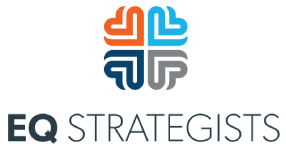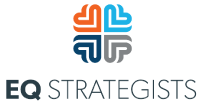Gone are the days of using technical skills, educational credentials and years of experience as a key predictor of an individual’s professional acumen. Increasingly, organizations are recognizing the importance of emotional intelligence as a determining factor of an individual’s performance. A leader’s emotional intelligence (EQ) matters and cultivating their EQ can lead to better teamwork, a positive company culture and overall organizational growth and success.
The Significance of Emotional Intelligence
Emotional intelligence involves the ability to recognize, understand and manage both our own emotions and those of others. It is comprised of skills like self-awareness, self-regulation, empathy and social awareness, all of which play a critical role in interpersonal dynamics and decision-making within the workplace.
Enhanced Leadership Effectiveness
Leaders with a high EQ are better equipped to inspire and motivate their teams, navigate conflicts and foster a culture of trust and collaboration. They possess a keen awareness of their own strengths and weaknesses; this allows them to lead with authenticity and empathy while effectively managing their emotions in challenging and provocative situations.
Improved Communication and Relationship Building
Effective communication lies at the heart of every successful organization. Individuals with high emotional intelligence excel in communicating clearly, actively listening to others and resolving conflicts constructively. They are more aware of body language and non-verbal cues and can adapt their communication style to better connect and related within a diverse team, strengthening relationships and fostering a positive work environment.
Resilience and Adaptability
Resilience and adaptability are essential traits for a mid-level manager navigating uncertainty and change. Team leaders with high EQ often demonstrate greater resilience in the face of setbacks and are able to remain composed under pressure. Their ability to adapt to change, new challenges and different perspectives enables them to thrive in dynamic environments and contribute to organizational agility.
Enhanced Team Dynamics
Teams composed of emotionally intelligent individuals are more cohesive, collaborative and productive. Members with a healthy EQ are more likely to exhibit empathy and understanding towards one another, communicate openly and transparently and leverage each other’s strengths to achieve common goals.
By fostering a culture of psychological safety and mutual respect, emotionally intelligent teams can enjoy collective creativity and explore innovative ideas and drive sustainable business growth.
Client and Stakeholder Relationships
Emotional intelligence extends beyond internal interactions. it also impacts relationships with clients, vendors, partners and stakeholders. Professionals who have a strong EQ are more skilled at understanding the needs and emotions of others, building rapport and cultivating positive lasting partnerships, all of which are essential for driving customer satisfaction, loyalty and retention.
Emotional intelligence is not simply a desirable trait—it is a fundamental skill set that enables individual and organizational effectiveness in today’s nuanced and interconnected world. By prioritizing the development of emotional intelligence your organization can unlock the full potential of your team members, foster a culture of collaboration and innovation and achieve sustainable, long-term growth.
Embrace emotional intelligence as a cornerstone of leadership and organizational excellence, and watch as your culture thrive and your company differentiate itself from the competition.



